I'm running on a Raspberry Pi Pico (RP2040, Cortex-M0+ core, debugging via VSCode cortex-debug using JLink SWD), and I'm seeing strange behaviour regarding PendSV.
Immediately prior, the SVCall exception handler requested PendSV via the ICSR register. But on exception return, rather than tail-chaining the PendSV, execution instead returns to the calling code and continues non-exception execution.
All the while the ICSR register shows the pending PendSV, even while thread code instructions are repeatedly stepped. System handler priorities are all zero, IRQ priorities are lower.
According to the ARMv6-M reference manual, PendSV cannot be disabled.
So, what am I missing that would cause this behaviour?
Edited to add:
Perhaps it's a debugger interaction? The JLink software (v4.95d) is still in Beta...
I see that the debugger can actually disable PendSV and Systick - C1.5.1 Debug Stepping: "Optionally, the debugger can set DHCSR.C_MASKINTS to 1 to prevent PendSV, SysTick, and external configurable interrupts from occurring. This is described as masking these interrupts. Table C1-7 on page C1-326 summarizes instruction stepping control."
